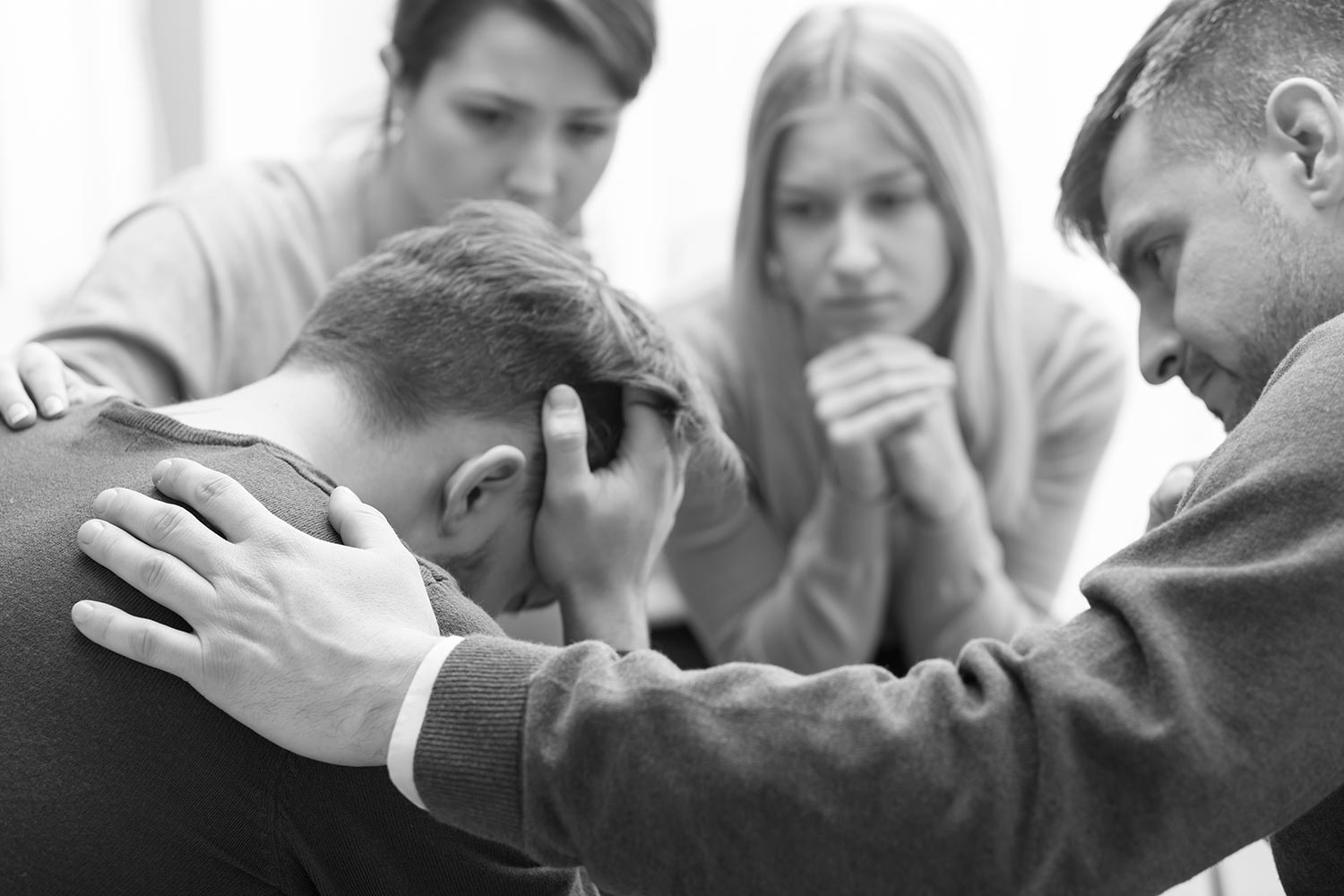Social and Emotional development
Loading...
“Just as no two trees are alike, no two pathways walk the same.”
scroll down
How will I be?
Our philosophy is simple.
It's not what you do - but rather, how you will be.
Our approach to education empowers the head, heart and body allowing children, teenagers, parents and educators to be all they can be.

We have a story to tell.
Actually... truth be told, it's our cliental that have the stories - and be prepared,
they are both happy and sad.
Our story, our purpose, our passion has been shaped and driven by people just like you and for people just like you.

We research.
Our educational programs and mentoring packages have been developed and tuned using creditable research. In fact, we are currently working with Dr Jennifer Cartmel of GRIFFITH UNIVERSITY to undertake further research into our flag-ship social and emotional program - Wings to Fly - one of the first recognised wellbeing programs for educators that care for babies, toddlers and children up to 5 years.

Real people. Real projects.
Our community projects have real outcomes. When we're involved it's at the deep grass-roots level. We don't shy away from the tough questions that have to be asked yet we're mindful and respectful of community needs and heritage.
We deliver in-school programs and online education for children, teenagers, parents and educators. We're also experienced working with large organisations as needed.

The Trust.
We are a not-for-profit Trust and we rely on your support as well as funding from the private and government sectors - so if you belong to or know of any organisation that may be able to help our cause, please send us a private email.

Our people.
Who we are is not as important as how we will be, although our door is always open for you to get to know us.

Our blog.
We'd love to share with you our teams experience, ideas, stories and knowledge. Please take a moment to read any articles that spark your interest...

Contact us.
We welcome you to contact us for any reason. If you'd like to inquire further about any of our professional development programs or any of our online programs please proceed to our contact page.

×
Every conversation helps.
Please share our website with your family, friends and work colleagues.
See what we're up to on Facebook including all updates and extra resources.
Pathways to Resilience Trust
Wings to Fly
Close
×
 How will I be?
How will I be?
On 10th August, 2007 Pathways to Resilience Trust came into being and as a registered charity over the past 10 years we have worked tirelessly to deliver on our status as a Public Benefit Institution with a mission to prevent anxiety, depression and suicide in children, young people and families.
Pathways to Resilience knows that it is possible to change a person's life trajectory by giving them the necessary skills to foster brain development, repair trauma and negative impacts of the past and to allow them to move on with their lives. Social, emotional wellbeing and resilience skills can be taught and that is our goal to give access to these skills for those who need it. Our Vision is Resilient Kids, Positive Families, Strong Communities.
We are an organisation of change and seek to continually improve ourselves, our programs and our organisational outcomes.
Click the Theory of Change to read more on how this process can be successfully implemented in your organisation or click Pathways to Resilience Organisational Theory of Change to see how we have successfully implemented it for our programs.
Close
×
 We have a story to tell.
We have a story to tell.
It was evident from the beginning, there was a desperate need for SEL and wellbeing programs to combat the growing mental health issues evolving - and not just in Australia, but world-wide. The staggering statistics of anxiety, depression and suicide were on the rise globally and something needed to be done. And with that notion, the Trust was born.
Originally we began with one person (part-time I might add) delivering a funded program to those in need... and today, Pathways to Resilience Trust has a dedicated team of 15 fulltime and part-time employees who are committed to getting outcomes for children, young people, families and communities.
We are eternally grateful to have received 5 years of funding in 2010 from the Talbot Family Foundation to contribute to our core operational work. This was followed by 3 years of funding from the Tim Fairfax Family Foundation along with an annual ongoing donation from a private donor to undertake regional, rural and remote work.
Our story continues to grow and evolve. We reflect, research and learn from the many projects we have undertaken allowing us to improve and develop new professional development programs, new seminars and cutting-edge online training programs that help achieve our mission of preventing anxiety, depression and suicide across the life spectrum.
If you allow us to, you will discover that we are a flexible, responsive organisation that is open to collaborative partnerships and progressive business relationships with others.
Close
×
 We research.
We research.
Pathways to Resilience has a strong commitment to research and evaluation, ensuring our programs and projects have a strong evidence base is a priority and central to our strategic and business development plans. We currently have a knowledge partnership with Griffith University, School of Human Services and Social Work. Dr. Jennifer Cartmel is the lead investigator in our research having already undertaken significant research on 'Wings to Fly', 'Journey to the Island of Calm' and our 'Community Wellbeing Project' undertaken in 2016. Dr. Cartmel is currently undertaking research on 'Kaleidoscope of Colour', 'Empowering Youth to Thrive' and additional research on other programs.
Close
×
 Real people. Real projects.
Real people. Real projects.
Communities for Children
Funded by the Federal Department of Social Services, Communities for Children provide services to ensure children have the best start in life by focussing on prevention and early intervention approaches that bring about positive family functioning, safety and child development outcomes for children and their families in disadvantaged communities throughout Australia. There are a number of Facilitating Partners throughout Australia who develop and facilitate a whole of community approach to support and strengthen local service networks that contribute to child safety. Pathways to Resilience is currently delivering training in evidence based programs and coaching and mentoring on behalf of three Facilitating Partners;
- The Salvation Army Logan
- Mission Australia Inala - Ipswich
- Gladstone Area Promotion and Development Limited
Save the Children
Project details coming soon.
Empowering Youth to Thrive
Project details coming soon.
Close
×
 The Trust.
The Trust.
Pathways to Resilience Trust was set up as Public Benefit Institution to meet a growing need within the community to prevent anxiety, depression and suicide in children, young people and families, particularly in communities and areas that have limited access to services. It has charitable status and works from a strengths based community development approach to promote and prevent mental health issues. Our belief is that by imparting social and emotional wellbeing skills early in life and building children's resilience will reduce mental health and related issues into the future.
Close
×
 Our People.
Our People.
At the Pathways to Resilience Trust, we believe in the power of people. Our work is supported by a devoted team of passionate and knowledgeable personnel.
Dan Pierce, Business Development Officer daniel@pathwaystoresilience.org
 Dan has qualifications in law and experience in management, business development and contract administration. He is passionate about empowering individuals to be the best they can be through building their own social and emotional intelligence.
Debbie Miller, Director of Education and Learning education@pathwaystoresilience.org
Dan has qualifications in law and experience in management, business development and contract administration. He is passionate about empowering individuals to be the best they can be through building their own social and emotional intelligence.
Debbie Miller, Director of Education and Learning education@pathwaystoresilience.org
 Debbie Miller is the Director of Education and Learning at Pathways to Resilience Trust. Debbie Miller is an experienced educator specialising in Early Childhood and has over 30 years experience across the educational field to tutoring in tertiary education. As Director of Education and Learning she trains key stakeholders working with children in social and emotional learning programs and embedding wellbeing in curriculum. She is the author of 'Wings to Fly'- an approach to social and emotional wellbeing in early years 0 to 5". She is a mentor and coach in children's wellbeing and uses tools of critical questioning to engage participants in working toward innovation and change. Her focus is on the accessibility of social and emotional learning for children in educational settings and the support of educators and practitioners in viewing children and their wellbeing through a strengths based lens, encouraging reflection at a deeper level of the connection between intention and outcomes for children. She regularly presents at conferences on strengths based practice to develop resilience, support behaviour and children's wellbeing, and the implications for educators of brain development in early years. She has also co-presented the research finding from the "Wings to Fly" program.
Madelaine Winstanley, Education and Training Consultant madelaine@pathwaystoresilience.org
Debbie Miller is the Director of Education and Learning at Pathways to Resilience Trust. Debbie Miller is an experienced educator specialising in Early Childhood and has over 30 years experience across the educational field to tutoring in tertiary education. As Director of Education and Learning she trains key stakeholders working with children in social and emotional learning programs and embedding wellbeing in curriculum. She is the author of 'Wings to Fly'- an approach to social and emotional wellbeing in early years 0 to 5". She is a mentor and coach in children's wellbeing and uses tools of critical questioning to engage participants in working toward innovation and change. Her focus is on the accessibility of social and emotional learning for children in educational settings and the support of educators and practitioners in viewing children and their wellbeing through a strengths based lens, encouraging reflection at a deeper level of the connection between intention and outcomes for children. She regularly presents at conferences on strengths based practice to develop resilience, support behaviour and children's wellbeing, and the implications for educators of brain development in early years. She has also co-presented the research finding from the "Wings to Fly" program.
Madelaine Winstanley, Education and Training Consultant madelaine@pathwaystoresilience.org
 Madelaine is an experienced teacher and program writer with a background in the Arts and Environmental Education. She has worked in primary schools, tutored in tertiary education and delivered professional development workshops for educators and community stakeholders. Madelaine has completed Mindfulness and Mindfulness in Education training with Openground, Mindful Schools and Still Quiet Place, and is also a certified Yoga Calm for Children instructor.
Close
Madelaine is an experienced teacher and program writer with a background in the Arts and Environmental Education. She has worked in primary schools, tutored in tertiary education and delivered professional development workshops for educators and community stakeholders. Madelaine has completed Mindfulness and Mindfulness in Education training with Openground, Mindful Schools and Still Quiet Place, and is also a certified Yoga Calm for Children instructor.
Close
×
 Our blog.
Our blog.
Thanks for taking the time to read our articles. This is a new page for us so please check back often as the list will grow. Simply click on the titles of any articles you might find interesting.
Close









 How will I be?
How will I be? We have a story to tell.
We have a story to tell. We research.
We research. Real people. Real projects.
Real people. Real projects. The Trust.
The Trust. Our People.
Our People. Dan has qualifications in law and experience in management, business development and contract administration. He is passionate about empowering individuals to be the best they can be through building their own social and emotional intelligence.
Dan has qualifications in law and experience in management, business development and contract administration. He is passionate about empowering individuals to be the best they can be through building their own social and emotional intelligence.
 Debbie Miller is the Director of Education and Learning at Pathways to Resilience Trust. Debbie Miller is an experienced educator specialising in Early Childhood and has over 30 years experience across the educational field to tutoring in tertiary education. As Director of Education and Learning she trains key stakeholders working with children in social and emotional learning programs and embedding wellbeing in curriculum. She is the author of 'Wings to Fly'- an approach to social and emotional wellbeing in early years 0 to 5". She is a mentor and coach in children's wellbeing and uses tools of critical questioning to engage participants in working toward innovation and change. Her focus is on the accessibility of social and emotional learning for children in educational settings and the support of educators and practitioners in viewing children and their wellbeing through a strengths based lens, encouraging reflection at a deeper level of the connection between intention and outcomes for children. She regularly presents at conferences on strengths based practice to develop resilience, support behaviour and children's wellbeing, and the implications for educators of brain development in early years. She has also co-presented the research finding from the "Wings to Fly" program.
Debbie Miller is the Director of Education and Learning at Pathways to Resilience Trust. Debbie Miller is an experienced educator specialising in Early Childhood and has over 30 years experience across the educational field to tutoring in tertiary education. As Director of Education and Learning she trains key stakeholders working with children in social and emotional learning programs and embedding wellbeing in curriculum. She is the author of 'Wings to Fly'- an approach to social and emotional wellbeing in early years 0 to 5". She is a mentor and coach in children's wellbeing and uses tools of critical questioning to engage participants in working toward innovation and change. Her focus is on the accessibility of social and emotional learning for children in educational settings and the support of educators and practitioners in viewing children and their wellbeing through a strengths based lens, encouraging reflection at a deeper level of the connection between intention and outcomes for children. She regularly presents at conferences on strengths based practice to develop resilience, support behaviour and children's wellbeing, and the implications for educators of brain development in early years. She has also co-presented the research finding from the "Wings to Fly" program.
 Madelaine is an experienced teacher and program writer with a background in the Arts and Environmental Education. She has worked in primary schools, tutored in tertiary education and delivered professional development workshops for educators and community stakeholders. Madelaine has completed Mindfulness and Mindfulness in Education training with Openground, Mindful Schools and Still Quiet Place, and is also a certified Yoga Calm for Children instructor.
Madelaine is an experienced teacher and program writer with a background in the Arts and Environmental Education. She has worked in primary schools, tutored in tertiary education and delivered professional development workshops for educators and community stakeholders. Madelaine has completed Mindfulness and Mindfulness in Education training with Openground, Mindful Schools and Still Quiet Place, and is also a certified Yoga Calm for Children instructor.
 Our blog.
Our blog.